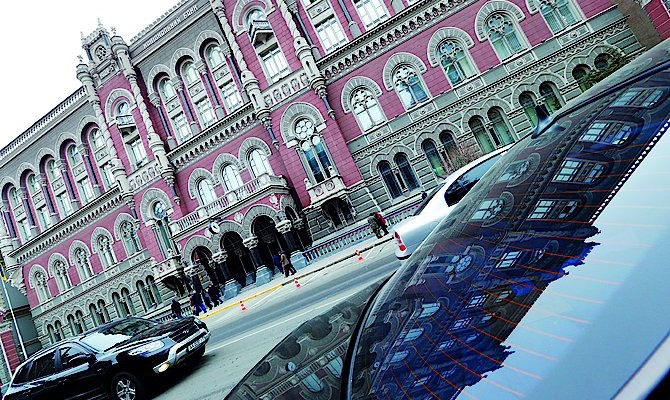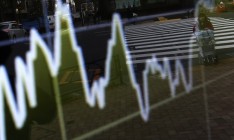Economy
Government policyIMF will once again be forced to review the cooperation arrangement with Ukraine

«Several days ago I negotiated with IMF experts. They have downgraded their forecasts,» said Governor of the National Bank of Ukraine Valeriya Hontareva on Saturday. Initially, in April, when approving the stand-by arrangement for Ukraine to the tune of US $17.1 bn, the IMF forecast a 5% decline in the economy in 2014 and a 2% growth in 2015. Based on the results of the mission from June 24 to July 13, however, the IMF downgraded its expectations, this time predicting a 6.5% decline this year, including 15-20% in Donetsk and Luhansk oblasts and a 1% growth next year. As a result, at the end of August the IMF reviewed its arrangement for Ukraine, partially alleviating fiscal and monetary conditions.
Accordingly, another review of the forecasts planned for October along with presentation of the new World Economic Outlook report will result in a second revision of the arrangement requirements and the amount of international aid.
The NBU governor did not specify what the new economic forecasts of Ukraine’s key creditor will be. «I cannot say what it will be (forecast of a real GDP decline — Capital) by the end of the year, but it will be most likely be more than 6.5%,» said Hontareva. According to her estimates, the domestic economy could slide 9-10% this year due to the escalation of the military conflict in the east of Ukraine in July-August, which led to destruction of the infrastructure and industry and due to the expected decrease in exports to Russia by 35% by the year’s end.
Any assessment of the future recession at more than 6.5% will require a review of IMF requirements to Ukraine. Just as during the first revision of the loan program, downgrading of economic forecasts will mainly apply to fiscal requirements, said Nikolay Gueorguiev, Mission Chief for Ukraine, at a press briefing in Washington based on the results of the first review.
The last time, by reducing the forecast of the real GDP decline from 5% to 6.5%, which undermined the revenues of the national budget, the IMF increased the permissible deficit of the consolidated budget of central and local authorities, the Pension Fund and other Social Security Fund from 5.2% of the GDP to 5.8% or UAH 10.5 bn to UAH 88 bn. It also increased the budget deficit, taking into account the hole in the budget of Naftogaz Ukrainy, from 8.5% of the GDP to 10.1% or by UAH 25.4 bn to UAH 153.3 bn. According to the IMF estimates, if the economy shrinks by 7.3% in 2014, these fiscal indicators will increase to 7.3% and 11.6% of the GDP respectively. There will also be a large misbalance in the national finance in 2015. If Hontareva’s forecasts come true, there will be even more dramatic changes in the conditions.
In addition to that, the demands to the official international reserves of the NBU will be adjusted. According to the calculations of the IMF experts, if pessimistic and not basic scenario takes place in Ukraine, which among other things implies a large capital outflow that will create a hole in the NBU reserves (the difference between the level demanded currently by the IMF and the realistically attainable level) to the tune of US $7.6 bn in 2014 and US $19 bn in 2015.
As a reminder, during the first review, the IMF allowed the NBU to accumulate gold and currency reserves (GCR) in the amount of US $16.2 bn by the end of the year instead of US $19.2 bn and US $23.4 bn instead of US $26.7 bn by the end of 2015. However, in a situation of a protracted economic recession without additional injections, the GCR may total only US $8.6 bn and US $4.4 bn respectively, according to the fund’s estimates.
Gueorguiev says that this does not mean that the IMF will be patching that hole. It can be patched from different sources, including, partially, from external assistance, attraction of external financing or acquisition of currency on the domestic market by the NBU, but also partially by reducing the fund’s requirements of the volume of gold and currency reserves.






 of the agreement of syndication with Financial Times Limited are strictly prohibited. Use of materials which refers to France-Presse, Reuters, Interfax-Ukraine, Ukrainian News, UNIAN agencies is strictly prohibited. Materials marked
of the agreement of syndication with Financial Times Limited are strictly prohibited. Use of materials which refers to France-Presse, Reuters, Interfax-Ukraine, Ukrainian News, UNIAN agencies is strictly prohibited. Materials marked  are published as advertisements.
are published as advertisements.